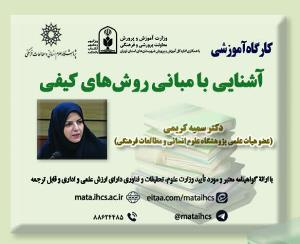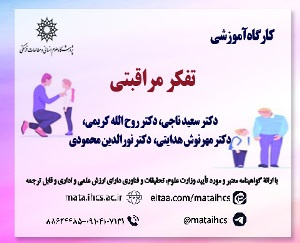اسطوره بخارا :مروری انتقادی بر کتاب «طعون و شبهات الشیعه الأمامیه حول صحیح البخاری و الرد علیها» (2)
آرشیو
چکیده
مسئله اصلی این مقاله تحلیل انتقادی رویکرد و محتوای کتاب « طعون و شبهات الشیعه الأمامیه حول صحیح البخاری و الرد علیها » در نام گذاری محمد بن اسماعیل بخاری به لقب امیر المومنین فی حدیث است. مولف کتاب این لقب را مشهور ، صحیح و بی نیاز از بحث و نظر می داند . پژوهه فرا رو با بهره گیری از نقد تاریخی به مثابه روش تحلیل و لقب پژوهی اجتهادی به مثابه منطق توصیف ساختار، مضمون و تاریخ گذاری القاب علمی ، رَوایی و صحت ادعای مولف کتاب را به آزمون سپرده است. یافته های مقاله اثبات می کند که مبانی این ادعا مخدوش است ، رویکرد و روش اثبات آن سست و با اصول و قواعد لقب پژوهی اجتهادی ناسازگار است. دستاورد مقاله تبیین اثر پذیری این ادعا از اندیشه های سلفیان معاصر در اسطوره سازی از بخاری به منظور ایجاد هراس و انسداد در مسیر جریان نقد بخاری است که در سده معاصر از سوی جریان های حدیث پژوهی اهل سنّت ، امامیه و خاورشناسان در حال توسعه است .The Myth of Bukhara: A Review of the Book “Criticisms and Doubts of the Imami Shia Against Ṣaḥīḥ al-Bukhārī and Rejecting Them” (Part 2)
The main issue of this article is a critical analysis of the approach and content of the book " Criticisms and Doubts of the Imami Shia Against Ṣaḥīḥ al-Bukhārī and Rejecting Them" regarding the attribution of the title "Amīr al-Mu'mīnīn" to Muḥammad ibn Ismā'īl Bukhārī in the hadith. The author of the book considers this title well-known, authentic, and beyond dispute. Through historical criticism as an analytical method and title analysis as a descriptive logic, this article scrutinizes the structure, content, and historical attribution of the scientific, narrative, and validity titles claimed by the author. The findings of the article demonstrate that the foundations of this claim are ambiguous, and its approach and method of proof are weak and incompatible with the principles and rules of title analysis. The achievement of the article is to clarify the influence of this claim on contemporary Salafi thought in mythologizing Bukhārī to create fear and obstruction in the path of the growing criticism of Bukhārī by the hadith scholars of Sunni, Imamiyyah, and Orientalists in the contemporary era.







